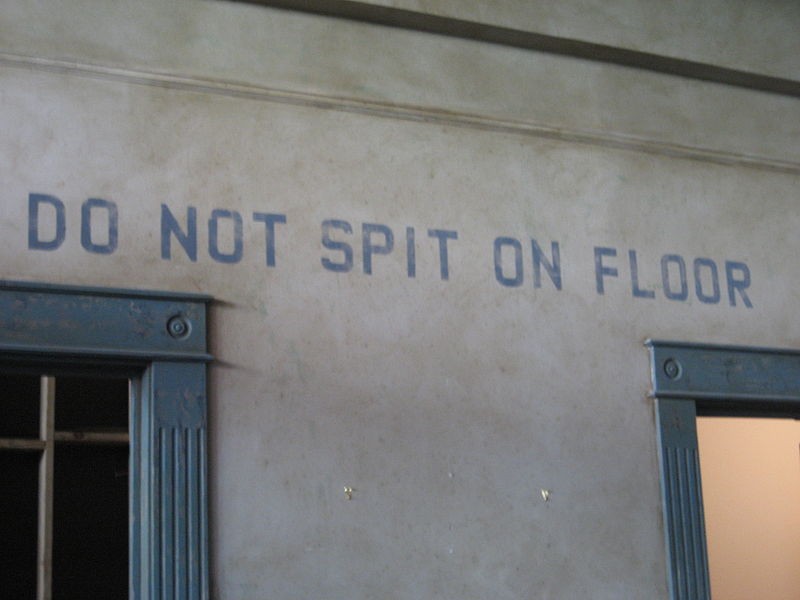
What If We Didn't Have Spit?

In this series, Life's Little Mysteries provides expert answers to challenging hypothetical questions.
Spit gets a bad rap. We seldom think about it other than with disgust, as we step around sidewalk loogies and shrink back from drooling babies. The sight of blood gives us the heebie-jeebies also, but we at least acknowledge the vital role played by that fluid inside the body. Spit, meanwhile, is an unsung hero of a bodily fluid if there ever was one.
"I don't think that people realize the importance of saliva until the well runs dry," said Ana Diaz-Arnold, DDS, University of Iowa professor of family dentistry, in an article on the university website. Operating a mouth with no spit, she said, is "like driving a car without motor oil." So, what would that be like?
The milliliter of spit that coats the surfaces in our mouths at any time is 98 percent water and 2 percent active ingredients, including electrolytes, mucus, antibacterial compounds and enzymes. Each component serves a function, such as breaking down starches and fats, lubricating food for ease of swallowing, buffering the teeth and gums to protect them from acids and bacteria, and killing microbes, of which there are billions in the mouth at any time. In 2006, scientists even discovered a painkiller in saliva that is six times more powerful than morphine.
Related: Could humans ever regenerate a limb?
All of these roles are so vital that when people suffer from an underproduction of saliva, a condition known as dry mouth, they quickly develop cavities, oral yeast infections and other unsightly diseases.
But spit serves yet another crucial role. According to Paul Breslin, an oral perception researcher at Rutgers University and Monell Chemical Senses Center, lubricating proteins in saliva shield teeth from their bitter enemies: each other.
Sign up for the Live Science daily newsletter now
Get the world’s most fascinating discoveries delivered straight to your inbox.
Teeth are the hardest objects in the human body, and you're constantly bashing them against each other with the full force of your jaw. Normal chewing exerts an estimated 68 pounds of pressure per square inch on teeth, whereas intentionally clenching your jaw ups the pressure to 150 pounds per square inch. Grinding your teeth at night — a stress-related behavior exhibited by 10 to 15 percent of people — places an extraordinary 900 pounds of pressure per square inch on your pearly whites. To get an idea of the pressure from teeth-grinding, imagine a sumo wrestler balancing precariously on your molar.
"Only saliva can lubricate under the extremely high pressure that happens when your teeth come together," Breslin told Life's Little Mysteries. He said saliva contains a perfect recipe of proteins for lubricating the teeth, allowing them to slide past each other like a well-oiled engine rather than chisel away at each other like tectonic plates. "It's extraordinarily difficult to lubricate under high pressure," he said. "If you didn't have those proteins in your saliva, it would only take a few years for your teeth to wear down to nubs."
Spit: the only thing standing between you and a yeast-infected, rotten, toothless existence.
Follow Natalie Wolchover on Twitter @nattyover or Life's Little Mysteries @llmysteries. We're also on Facebook & Google+.
Natalie Wolchover was a staff writer for Live Science from 2010 to 2012 and is currently a senior physics writer and editor for Quanta Magazine. She holds a bachelor's degree in physics from Tufts University and has studied physics at the University of California, Berkeley. Along with the staff of Quanta, Wolchover won the 2022 Pulitzer Prize for explanatory writing for her work on the building of the James Webb Space Telescope. Her work has also appeared in the The Best American Science and Nature Writing and The Best Writing on Mathematics, Nature, The New Yorker and Popular Science. She was the 2016 winner of the Evert Clark/Seth Payne Award, an annual prize for young science journalists, as well as the winner of the 2017 Science Communication Award for the American Institute of Physics.










